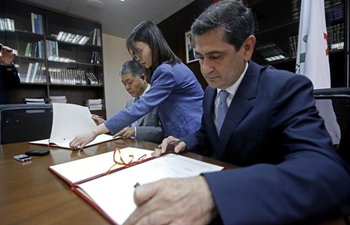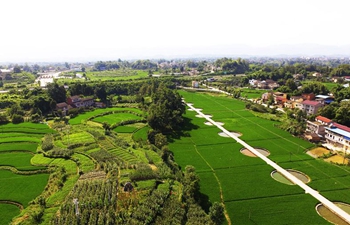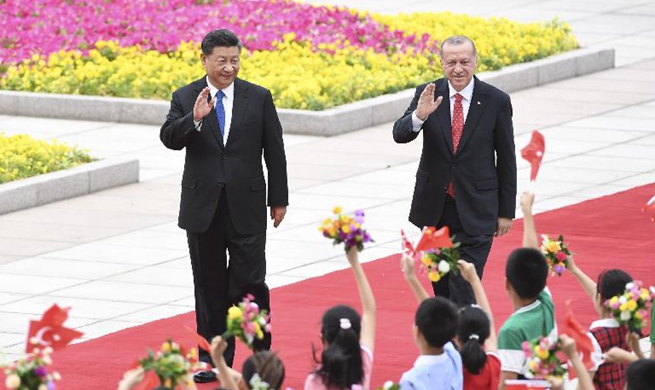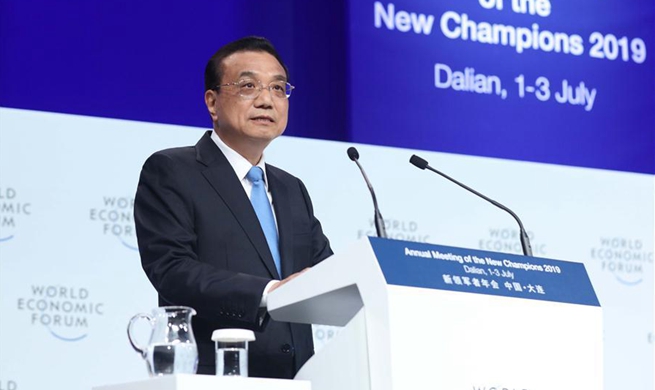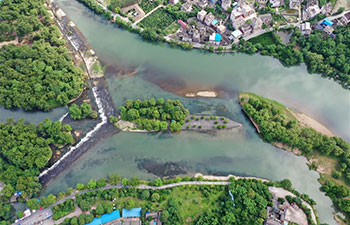SYDNEY, July 3 (Xinhua) -- Diagnosed rates of HIV in Australia have fallen to its lowest level in 18 years, according to a new report on Wednesday.
The University of New South Wales' (UNSW) Kirby Institute found that during 2018 there were 835 cases of diagnosed across the country, indicating a 23 percent drop over the past five years.
"This reduction is very encouraging," head of the Kirby Institute's Surveillance, Evaluation and Research Program Professor Rebecca Guy said.
"Although we've seen reductions in recent years in some Australian states, in 2018 we saw significant reductions at a national level."
"The decline in HIV diagnosis is a result of the incredible commitment from government, healthcare, community and research sectors to eliminate HIV transmission in Australia."
"As a result of these partnerships, more people are being tested for HIV than ever and people living with HIV are starting treatment earlier."
Welcoming Wednesday's announcement, Australian Health Minister Greg Hunt said in a statement, "this incredible result is also because of a strong uptake among gay and bisexual men of the daily HIV prevention medication pre-exposure prophylaxis (PrEP), which our Government listed on the Pharmaceutical Benefits Scheme on 1 April 2018."
"The 180-million-Australian dollar (126 million U.S. dollars) listing of PrEP benefits up to 32,000 people who would otherwise pay 2,496 Australian dollars (1,746 U.S. dollars) per year without the subsidy."
The Australian government has also made two other HIV medicines available to the public recently, with the drug Juluca listed on the Pharmaceutical Benefits Scheme in December 2018 and Biktarvy, which was introduced in March this year.
"These advances have been underpinned by the partnership approach between the Australian Government, state and territory governments, people living with and affected by HIV, community organizations, researchers and clinicians," Hunt said.
"These significant investments put Australia in reach of being one of the first countries in the world to virtually eliminate new HIV transmissions."

